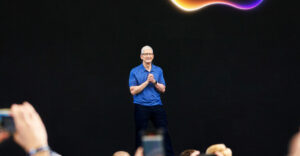
Here in the United States, we are in the midst of regularly scheduled insanity where, as part of the process to elect our top government official, the party that opposes the current administration does its best to discredit all of its eligible candidates and then wonders why a sitting president is almost always reelected for another term.
Each candidate, instead of focusing on what he or she can do, often just focuses on the mistakes the other party members running for the challenging spot have made. In a campaign, this kind of strategy is called negative campaigning. For a government, it is called propaganda. And here in the technology market, we call it FUD — for Fear, Uncertainty and Doubt.
Whatever it is called, it is an attempt to get people to believe the way you want them to believe, and while it might be the American Way, it has little to do with honor or justice.
Linux Propaganda
Last month, Dan Lyons at Forbes wrote an article called “Revenge of the Nerds” in which he looked into some of the propaganda being generated by Linux proponents. Lyons sourced at least some of the funding back to Linux vendors, including IBM, who were benefiting from that propaganda.
He also seemed to find that the massive Linux groundswell might simply be the result of a relatively small number of people who are capable of generating massive numbers of online discussions. Many of these discussions seem to have little connection with reality. This, at least to me, seems consistent with the definition of propaganda, particularly because its purpose seems geared toward driving public opinion.
You would think people would tire of being manipulated by propaganda, but that is often not the case. After all, people still fall for e-mail scams. So, before you believe some stranger — including me — it might be wise to consider why Linux proponents are taking their position.
Fortunately, there are strong signs that IT managers are seeing through the FUD no matter who dishes it out.
HP Indemnification
One of the ways you can tell is by looking at the recent financial numbers from HP and IBM. IBM is reporting about US$1 billion in Linux-related revenue, while HP is reporting $2.5 billion. To me, that says the value of indemnification and not being part of the SCO action is worth $1.5 billion to HP and has cost IBM at least that much in lost revenue.
It also clearly says Linux is far from free. With Novell now adopting indemnification, we have three power players for Linux: IBM, which has the greatest investment; HP, which is getting the most revenue (so which CEO do you think is smarter?); and Novell, which is structured like the Linux Microsoft.
I can easily see a scenario in which HP and Novell get together and own this segment. In light of the Apple iPod deal, HP is clearly thinking outside the box, so an expanded Novell partnership could be very powerful for both firms. I have to admit I’m kind of getting a private kick out of the CEO of IBM, who is clearly part of the “old boys network,” getting his butt kicked by a CEO who clearly isn’t.
Linux on the Desktop
When I think of risks, I have to think of the folks that have publicly announced large Linux desktop deployments before any of the distributions are close to ready for these deployments. Linus Torvalds himself said recently that Linux won’t be ready for the desktop for another 10 years.
Having watched similar insanity with Windows NT, Active Directory, OS/2, the client-server architecture and thin clients result in a lot of unfortunate job changes for the folks who have to comply with these decisions, I’ve volunteered to help out.
This week I fly to New York on my own nickel to tape a show for WatchIT, a video on how to deploy a new desktop platform successfully. This is not a trivial commitment on my part. It required writing a 4,000-word script, a coast-to-coast trip in ugly weather, and retraining myself on a teleprompter (which I haven’t used in years).
Careful Reasoning
However, I’ve watched a lot of folks lose their jobs over the years because they approached decisions to change operating systems on the desktop religiously rather than through careful reasoning. It is true that if you know what you are doing, you can survive an operating system move.
You need to think about building broad support in your company, managing expectations and picking your fights. The film I’m doing will focus on that. I’m simply tired of watching good people lose their jobs because of managers who don’t think through all aspects of their decisions.
Desktop migrations touch many people and are too much about politics. It is easy to understand why folks tend to forget this because it is too easy to justify a decision after the fact. Given that we don’t do complete operating system changes every day, it is also easy to understand why people ignore the potential impact of this decision. After being involved in more than 100 rollouts, I don’t.
Rob Enderle, a TechNewsWorld columnist, is the Principal Analyst for the Enderle Group, a company founded on the concept of providing a unique perspective on personal technology products and trends.












































Well, Rob, then there are strategical aspects in chosing software. Interesting this is.
By the way: If you want to make a change, dont’t talk about it. Do it. I, personally, made the experience that talking about Linux (or better Open Source") on the desktop just frightens users. But afterwards, they tend to be pretty open-minded. Especially, if you can offer some value out of the migration that allows users to work better, faster, whatever.
Now.
Well… it’s been a week and Rob has yet to reply – as predicted.
Remember when he used to step in with the occasional ‘rebuttal’ back in the ‘Hit Men of Linux’ days?
No surprise. Odd that only we are responding to him, perhaps his 15 minutes are finally up? I hope not, I’ll honestly miss his hijinks.
.
I have a better memory for you by the way, remember when he claimed that Linux wasn’t ready for the enterprise while at the very same time Oracle was switching to it as their preferred deployment platform?
.
Oh, and how could you forget his pricessless advice that a homogenous environment of operating systems would *decrease* the proliferation of viruses, just as a colony of clones would be best protected from disease?
.
You may as well take business advice from a communist.
That’s AM using, my commented was edited.
.
In my last reply, I pointed out that Enderle couldn’t possibly pass an interview process for a junior level engineer yet he’s given a pulpit to spread really bad advice. It’s like taking business advice from a communist.
.
I wonder if they’ll edit this?
on learning how to spell Dan Lyons’ name correctly after having it spelled out for him. Why, it almost makes it seem as though Mr. Enderle may have read the article that he cited. Most AM azing indeed.
.
Soon perhaps Mr. Enderle can actually become acquainted with the technology industry of which he seems to think he’s an expert upon?
.
Tell me Mr. Enderle, are you still offering "a range of between 55 and 65 percent" of SCO winning against IBM in court? I must say, that was quite AM using to see that.
.
http://www.technewsworld.com/perl/story/31479.html
.
I personally don’t think you could predict the victor in a boxing match between Mike Tyson and Michael Jackson yet people actually print your inane concotions. I suppose every industry needs a buffoon for comedic relief though so don’t think of this as a complaint. I’m awed to see the Peter Principle not only at work, but at work in overtime in your case.
In this article I saw this statement from Enderle:.> Last month, Dan Lions at Forbes wrote an article> called "Revenge of the Nerds" in which he looked> into some of the propaganda being generated by> Linux proponents. Lions sourced at least some of> the funding back to Linux vendors, including IBM.And if you read the above, it appears that Enderle is claiming that Dan Lyons traced some organized astro turf campaign back to IBM. An astro turf campaign is a fake grassroots campaign..If you read very carefully though, that isn’t what Enderle says. Enderle says that Dan Lyons looked into the source of "propoganda" and then in an entirely different note, pointed out some sort of funding for something related to Linux was traced back to IBM..Because Lyons didn’t uncover any astro-turf campaign at all. Just check the article for yourself:.http://www.forbes.com/2003/12/16/cx_dl_1216linux.html.Speaking of paid propoganda Mr. Enderle, does Microsoft owe you any money for outstanding service and/or are you working for them now? My bet, is that there will be no answer to this question, or perhaps, another misleading statement like his initial statement.